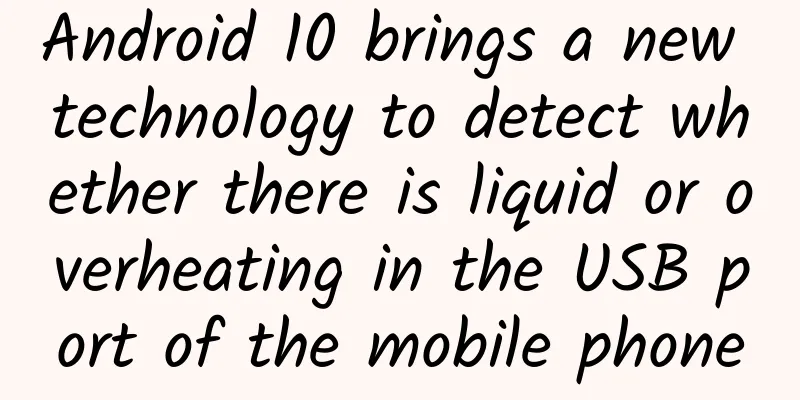Baidu enters the TV market: the foresight of a "latecomer"

|
Making cars can no longer satisfy Baidu. On August 18, Baidu held the 15th "Baidu World Conference". At the conference, in addition to showing its latest work in the field of autonomous driving, the car robot, Baidu also unveiled a series of smart consumer products such as wireless smart headphones Pro, Tiantian smart rotating screen, smart giant screen TV V86, and smart dictionary pen. In recent years, cross-border cooperation has become common in the technology industry, and automobiles have become the promised land that giants are rushing to. Huawei, Xiaomi and other companies have reached out to automobiles after their success in the consumer technology product market, while Baidu has gone the other way and suddenly entered the consumer product field after years of research on automobiles. However, the timing of Baidu's entry into the smart hardware field seems a bit subtle. Does Baidu have a chance in this "bloody" market? Among the new products released by Baidu this time, the most eye-catching one is undoubtedly the 86-inch large-screen TV, but at the same time, TV is also one of the most competitive smart hardware fields in recent years. In the first half of this year, Samsung and LG ranked first and second in terms of shipments in the global TV market, followed by TCL, Hisense and Xiaomi from China, with shipments even exceeding Sony. Another domestic brand, Skyworth, also squeezed into the top ten in terms of shipments, and there are also potential competitors such as Huawei eyeing it. At the same time, the concentration of the top brands in the global color TV market is further intensifying. The total shipments of the top five brands on the list reached 30.9 million units, accounting for about 62.5% of the market. On the other hand, the domestic color TV market is also not prosperous. According to the black-and-white electronics industry data released by Aowei Cloud Network in the first half of 2021, the domestic color TV market achieved sales of 17.81 million units in the first half of the year, a year-on-year decrease of 14.7%. Overall, the competition environment in the domestic color TV market is terrible: the cake is shrinking, but there are many "eaters" with big appetites. "Red Ocean" is not enough to describe the cruelty of this market, "Blood Ocean" is probably more appropriate. So in this environment, does Baidu still have a chance to break through successfully? At least Baidu’s general direction is right: to make high-end televisions. In the first half of this year, although domestic TV sales decreased, sales increased by 15.1% year-on-year. This is certainly due to rising raw material prices and chip shortages, but to a certain extent it also reflects that the domestic color TV market has entered the stock stage. There is another set of data to prove this: as of March this year, a total of 118 new products were launched in China's offline color TV market, including 44 new products of 70 inches and above, accounting for 37.3%; 12 new products of 80 inches and above, accounting for 10.2%. According to offline monitoring data from Aowei Cloud Network, from Week 1 to Week 14 of 2021, the market share of retail sales of products above 70 inches reached 30.7%, an increase of 12.1 percentage points from the same period in 2020. Let’s take a look at the TV launched by Baidu this time: 86 inches, 4K, 120Hz, MEMC, DCI-P3, Dolby Atmos, lifting camera, far-field voice, WiFi6 and other functions are all available, which is obviously aimed at the high-end market. Baidu's entry into the TV market can also be seen as a "counter-cyclical investment" strategy. Against the backdrop of a shrinking market, dominant companies may be able to conduct strategic contraction. If other companies increase their investment against the trend, they may be able to occupy a favorable position after the market prospers again. More importantly, Baidu’s ambition may not be limited to smart TVs. The "Blue Ocean" Behind the "Blood Sea" The hardware products launched by Baidu, ranging from cars to TVs and speakers, all have a common foothold: AI. For AI, TV, touch screen speakers, dictionary pens, and headphones can all become its entrance, which is the main reason why Baidu focuses on launching such products. For Baidu, the significance of promoting the AI ecosystem is far greater than how many TVs are sold - after all, the first launch of the Xiaodu smart giant screen TV V86 was only 500 units. According to the forecast data of Aowei Cloud Network, the retail sales of smart home devices in China will be around 400 billion yuan in 2021, of which smart home appliances will account for more than 85% of the market share. In addition, according to IDC's forecast, by 2030, every household in China will have 40-50 device sensors. The smart home composed of smart devices and even the entire AI ecosystem is still a blue ocean market to be explored. Baidu actually has a good foundation in the AI ecosystem market. Smart speakers have now become an important entry point for smart homes. In the first half of this year, the retail share of smart speaker products has reached 25%. A consumer survey report also shows that users' needs for living rooms are mainly divided into two categories: relaxation and watching movies. In the relaxation scenario, 48% of users believe that smart speakers are a must-have product. Smart speakers are one of Baidu's most successful hardware products. Baidu has leading AI technology in China, and the voice recognition accuracy of Xiaodu speakers is also at the forefront of similar products in China. According to IDC and Canalys statistics, in the first quarter of 2021, Xiaodu ranked first in global smart screen shipments and first in China's smart speaker shipments. According to statistics, 47% of surveyed consumers tend to buy smart home products in bulk. Baidu has the key to open the smart home ecosystem, but the hardware ecosystem has not been built up yet, which is a waste. The launch of multiple smart hardware products at once shows Baidu's determination to break the circle. For Baidu, making TVs is more like a flex of muscles, showing its comprehensive strength in hardware, software, AI and other aspects. In the short term, what Baidu is seeking may be to attract more TV manufacturers to use Baidu's AI technology. In the long run, it is to let its AI penetrate into more hardware products. As Baidu Vice President Jing Kun said: "Our ambitions are more than just a little bit. Today may not be a good time in the eyes of the outside world, but Xiaodu itself is an open artificial intelligence platform. We hope to interact more with hardware and make more explorations in scenarios such as portable, car, and home." Therefore, we may see the following changes in the future: First, Baidu will build its own "Baidu Ecosystem" by investing in various smart hardware manufacturers like Xiaomi. Second, Baidu's AI technology will be integrated into more brands and more categories of smart hardware products, and Baidu will use the hands of others to complete its own AI ecological layout. Third, Baidu may gradually retreat behind the scenes and provide algorithms, systems, services, applications and even platforms, which is more in line with Baidu's positioning as a software company. Of course, don’t forget about cars. For technology companies, their ultimate goal can basically be summarized as: to penetrate into every aspect of consumers’ daily lives. Baidu has strong cloud service capabilities, so through the cloud service platform, it is definitely Baidu’s future goal to allow smart terminals and cars to share the ecosystem and connect the two major scenarios of “home” and “car”. At present, smart home, including the entire AI ecosystem, is still in its early stages of development, and major manufacturers are actively making plans. From this perspective, Baidu's entry into the TV industry is not too late, and it can even be said to be just right. From small screens to large screens, from homes to cars, Baidu has opened multiple entrances to the AI ecosystem. Although the order of moves is slightly different, Baidu is still a force that cannot be ignored in the field of AI ecology. As a winner of Toutiao's Qingyun Plan and Baijiahao's Bai+ Plan, the 2019 Baidu Digital Author of the Year, the Baijiahao's Most Popular Author in the Technology Field, the 2019 Sogou Technology and Culture Author, and the 2021 Baijiahao Quarterly Influential Creator, he has won many awards, including the 2013 Sohu Best Industry Media Person, the 2015 China New Media Entrepreneurship Competition Beijing Third Place, the 2015 Guangmang Experience Award, the 2015 China New Media Entrepreneurship Competition Finals Third Place, and the 2018 Baidu Dynamic Annual Powerful Celebrity. |
<<: Watch industry executives: Smart watches are too ugly
Recommend
Learn about the Longevity Knowledge Report: Live Longer and Better
The World Economic Forum has released a new repor...
Jiang Shuying asked what Aquaman was, so what did Aquaman mean? Do you know Aquaman?
The TV series "Nothing But Thirty" star...
"Without Office, WPS will make more money"
How popular is WPS in the country? An office soft...
Traffic screening for Tencent advertising promotion!
This time, the editor will continue to share with...
Former Douban Operations Director: How to acquire high-quality seed users?
Xiaobai talks a lot: At present, there are roughl...
If you choose the wrong tap, you will drink poisonous water every day. How to choose? Remember these points
Reviewer of this article: Li Xueyang, Postdoctora...
If air enters the blood vessels during infusion, is there any hope?
Image source: Qiantu.com If air enters the blood ...
The real version of Gree mobile phone is exposed: it makes me cry!
We have previously reported on the appearance and...
When buying traffic for information flow advertising games, take care of these 4 factors to increase the payment rate!
There are always people living in a higher dimens...
The latest TOP 10 reasons for IOS review rejection!
At present, the machine review mechanism is becom...
Introduction to GIT - Basic Concepts and Operations
[[141900]] First of all, it must be pointed out t...
Tik Tok promotion strategy, how to come up with a Tik Tok title?
Tik Tok is a popular product. Many individuals, t...
Who invented the concept of virtual age?
At the end of every year, the firecrackers in the...
The football at the Paris Olympics actually has a "heart"! Why do we need to implant a chip in the football?
He Liang, a reporter from Science Times The footb...
Lao Ke | Things you don’t know about the COVID-19 vaccine
-END- Producer: Chen Yong, Yan Junyan Reporter: G...









